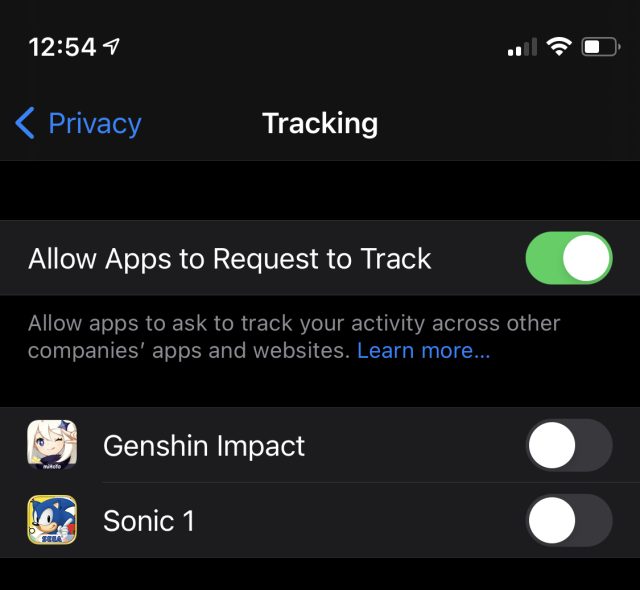Facebook’s ability to track users and show them certain ads appears to be tanking thanks to Apple’s “ask not to track” feature, according to some advertisers.
Apple rolled out the privacy prompt in late April with iOS 14.5. Since then, nearly half of all iOS devices worldwide have at least version 14.5 installed, according to Statcounter, and a vast majority of these devices' users have chosen to deny Facebook and other apps the ability to track them. Nearly three months after the feature's launch, just 17 percent of users worldwide have opted in, according to analytics company Flurry.
The changes could have a significant effect on Facebook’s bottom line. Eric Seufert, an analyst who writes Mobile Dev Memo, forecasts that if only 20 percent of users consent to tracking, Facebook’s revenue could drop 7 percent in the first full quarter that the opt-in prompt is active (the forthcoming third quarter). The company warned back in February that the iOS changes would curtail its ability to track users across the Internet.
“It’s been pretty devastating for, I would say, the majority of advertisers,” Seufert told Bloomberg. “The big question is: Are we seeing just short-term volatility where we can expect a move back to the mean, or is this a new normal?”

It may be some time before advertisers have an answer to that question. Facebook initially appeared to be taking the low opt-in rate in stride, with media buyers not noticing significant changes. But that has apparently changed in recent weeks, with some buyers reporting that ad effectiveness began dropping this month.
Some advertisers, like e-commerce sites, appear to be hit particularly hard. Many retailers run software like Shopify, which shares customer data, including details about purchases that customers make on the site, with Facebook. That allows Facebook to refine its “lookalike” audiences, which advertisers buy access to so they can target other people who may be interested in buying the same thing.
One way Facebook could deepen its data pipeline would be to deepen its integration in retailer's online stores, which it appears to be doing with the rollout of Facebook Pay for e-commerce platforms like Shopify.
Before the new iOS feature was rolled out, media buyers reported that Facebook could capture as much as 95 percent of sales made on their clients’ sites. Now, many media buyers are reporting that Facebook is capturing only 50 percent of sales. One buyer reports that, with one client, just 3 percent of sales are showing up in Facebook’s ad manager.
Other people visit e-commerce sites without purchasing anything, and to close the deal, retailers will “retarget” those users, showing them ads on Facebook for an item they viewed but didn’t buy. Those ads aren’t possible when “ask not to track” is enabled.
"We believe that personalized ads and user privacy can coexist, without the collateral damage caused by App Tracking Transparency," a Facebook spokesperson told Ars. "We're also working on our own solutions to help businesses and investing in privacy-enhancing technologies designed to minimize the data we process, while still allowing us to show relevant ads and measure ad effectiveness."
As users have asked Facebook not to track them, the company’s feedback loop has broken for a portion of its audience, costing it a key source of data. Though iOS doesn’t run on a majority of mobile devices, it does have a significant footprint in some of the world’s largest advertising markets, including the US. The US market is so important to advertisers that Flurry breaks out the country’s iOS tracking opt-in rate separately. Just 10 percent of US users opt in to tracking, compared with 17 percent worldwide.
By opting out at such high rates, US iOS users could have a particularly significant impact on Facebook’s revenue. In the US and Canada last year, the company made five times more advertising revenue per user than its worldwide average. What happens to that number in the third quarter will reveal the extent to which tracking opt-out threatens the company’s earnings.



3175x175(CURRENT).thumb.jpg.b05acc060982b36f5891ba728e6d953c.jpg)

Recommended Comments
There are no comments to display.
Join the conversation
You can post now and register later. If you have an account, sign in now to post with your account.
Note: Your post will require moderator approval before it will be visible.